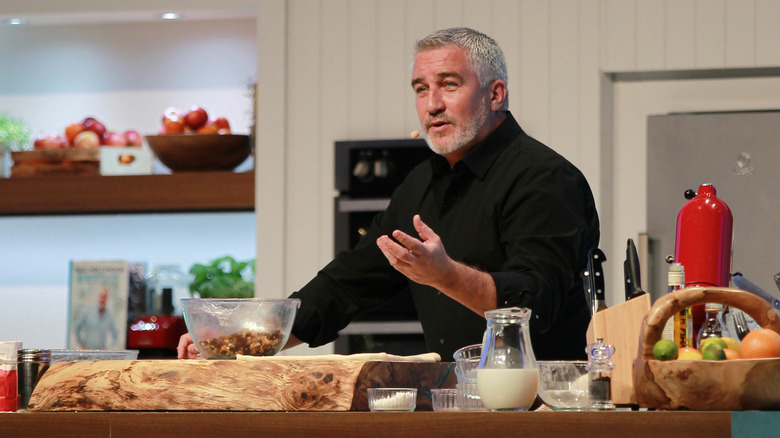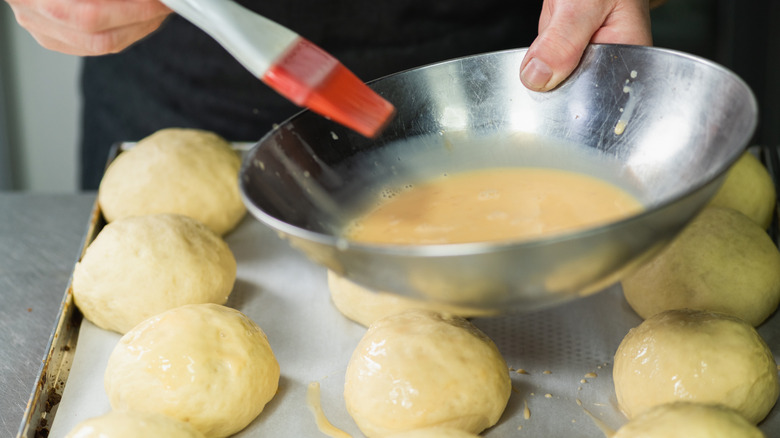Why Paul Hollywood's Egg Wash Is Better Than Yours
I'm a pretty experienced baker, but I've never given much thought to egg wash. After all, it's mostly for aesthetics. But "Great British Bake Off" judge and bread expert Paul Hollywood has given it plenty of thought. Hollywood let viewers in on a secret when he shared his scone recipe with the BBC.
"Now, this is egg with a little bit of salt," he explained. "Salt breaks the egg down to allow it sort of a proper consistency of egg wash." Other experts agree: salt, the most important ingredient in your kitchen, makes for an easier application, helps with browning, and enhances flavor. It's also the secret for the creamiest scrambled eggs.
While Hollywood brushed on his egg wash straight away, many bakers recommend letting the mixture sit for a few minutes. The wait gives the salt plenty of time to do its magic. Don't be alarmed if it starts to turn orange: It's just the egg reacting to the salt, and the wash is perfectly safe to use. You can even save it if you're planning to bake again soon — if covered, it'll keep for up to two days in the fridge.
Hollywood recommends beating one egg with a pinch of salt, though some recipes call for more. Since pure egg can be gooey and hard to spread, that pinch of salt is especially important in egg-heavy washes.
What's the best egg wash?
Ultimately, the perfect egg wash ratio largely depends on personal preference. Different combinations of egg, milk, water, and salt will give you different results. As a rule of thumb, thicker washes — like yolk-only washes or washes mixed with cream — will give you a shinier finish and a darker color. Washes made with milk or water will give you an even application, but also a subtler shine and lighter color.
However, the point of egg wash isn't just to give pies and pastries a pretty golden-brown shine. It also helps glue things together or provide structure. Filled pastries, double-crust pies, and homemade ravioli often use egg wash to keep edges together. Some pie recipes call for a pre-baked crust with an egg wash glaze: The wash keeps the crust from getting soggy. Bakers use it to glue on garnishes, too. If you're using a recipe where egg wash works as a glue, stick to the suggested ratios.
However, the sticky nature of an egg wash can also spell disaster. In his tutorial, Hollywood warned against gluey mishaps. "Just egg wash the top, don't go down the sides," he explained. "Egg, when it goes in the oven, will actually solidify like a glue, and it'll prevent the scone from growing, so just concentrate your egg wash on the top and not the sides."

